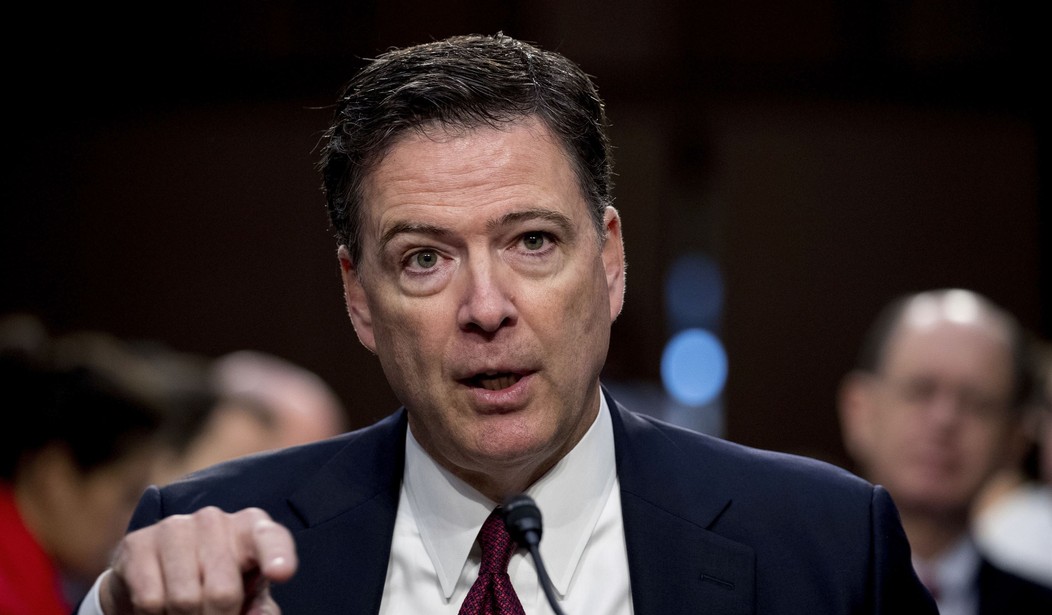Speaking to reporters after a lengthy grilling by Republicans on Capitol Hill Monday afternoon, fired FBI Director James Comey dodged a question about whether he leaked classified information in order to launch Robert Mueller's Special Counsel investigation. He also attacked veteran journalist Catherine Herridge in the process.
During open testimony last summer, Comey admitted to giving memos to a friend, who then gave them to the New York Times. The memos were about conversations Comey had with President Trump at the White House.
On May 16 the New York Times published a story citing memos belonging to former FBI Director James Comey. The paper reported the memos showed President Trump asked for the FBI investigation into former National Security Advisor Michael Flynn to be dropped during a private meeting at the White House before Comey was fired. The content of the memos was described in the reporting, but the memos were not published.
"I woke up in the middle of the night on Monday night, because it didn't dawn on me originally, that there might be corroboration for our conversations, might be a tape, my judgement was that I needed to get that out into the public square and so I asked a friend of mine to share the content of the memo with a reporter," Comey said. "I didn't do it myself for a variety of reasons, but asked him to, because I thought that it might prompt the appointment of a Special Counsel. I asked a close friend of mine to do that."
That friend was Columbia Law Professor Daniel Richman and the memos in question contained classified information. From WSJ:
Recommended
At least two of the memos that former FBI Director James Comey gave to a friend outside of the government contained information that officials now consider classified, according to people familiar with the matter, prompting a review by the Justice Department’s internal watchdog.
The Justice Department inspector general is now conducting an investigation into classification issues related to the Comey memos, according to a person familiar with the matter. Mr. Comey has said he considered the memos personal rather than government documents. He has told Congress that he wrote them and authorized their release to the media “as a private citizen.”
Comey's admission prompted a number of legal questions about his handling of the memos and a number of Senators, both Republican and Democrat, sent Richman a letter asking him to turn them over to the Senate Judiciary Committee for evaluation.

























Join the conversation as a VIP Member